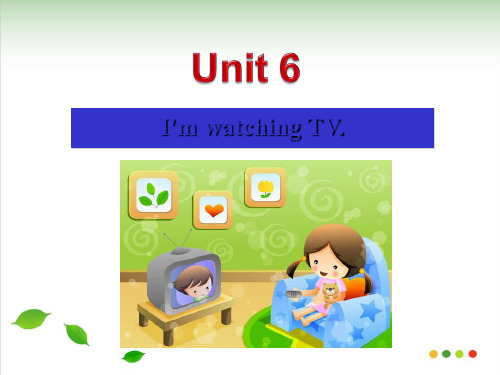初中英语说课课件
合集下载
八上英语unit1教学说课ppt

时间特征:ago 等
话题:学校郊游和周末活动
动词变化:规则和不规则动词
基本句式 :肯定/否定/疑问句
单元知识结构
进阶衔接
1. 话题范围更广 (1)谈论话题由七年级下册谈论学校郊游和周末活动拓展 到本单元的暑期活动。 (2)谈论活动的地点由周边向国内外游览胜地拓展。 (3)活动内容和感受更加丰富。
说课标:
2.语言知识
• 词汇:能够在具体的语境中感知和应用本单元的单词、短习惯用 语和固定搭配。
• 语法:能够掌握并应用本单元总结的表述度假活动的基本结构和 常用的表意功能。
• 功能与话题:在交际和书面写作中恰当理解和运用本话题的相关 语言完成指定任务。本单元的话题属于课标话题项目表第17个大 话题--旅游与交通的子话题(旅行),该大话题还包括交通运输 方式、交通标志及使用地图,这三个话题在七年级下册均有提及, 可以作为本单元学习的基础和拓展。
览胜地
核心问题
如何运用一般过去时 谈论假期活动
如何运用不定代词 谈论所见所闻
如何运用形容词描述 度假感受
学习活动
完成相关听力内容
通过讨论,合作,构建各 种表达假期活动的句式 通过操练,巩固语言点
通过小组合作, 调查组内成员度假情况
运用具体听力策略 完成相关听力内容 用讲故事的方式叙述Lisa
香港之行及感受
学习评价
课时
整理、归纳各种表达 假期活动的句式
1课时
老师点评
1课时
师生共同评比
1课时
找到Jane参与的活动以 及对活动的喜好和原因
通过扫读,寻读获取文章 大意,通过寻读,解决细
节问题
记录回答问题的表现
以讲故事的形式,复述Jane 的马来西亚之行。
初中英语定语从句复习说课课件

第三步,难点突破。 第三步,难点突破。
在基本练习结束以后,进入复习的重要两个环节, 在基本练习结束以后,进入复习的重要两个环节,即关系 代词中“ 代词中“which”与“that” “who” “whose”的用法区 与 别。首先,对于第一个难点设置一个小的情形,以学生感 首先,对于第一个难点设置一个小的情形, 兴趣的哈利波特系列小说和电影为背景。 兴趣的哈利波特系列小说和电影为背景。以完成句子练习 为训练形式。呈现关系代词中的只能够用关系代词“that” 为训练形式。呈现关系代词中的只能够用关系代词“ 的特殊情况。然后,让学生观察这些句子。学生通过观察, 的特殊情况。然后,让学生观察这些句子。学生通过观察, 总结相关规律。接着,通过将例句与语法点连线的方式, 总结相关规律。接着,通过将例句与语法点连线的方式, 复习这一特殊用法。 复习这一特殊用法。
2教材处理 教材处理
主要从两个方面作难点突破。 主要从两个方面作难点突破。 1,作为语法复习方面,重点突破点是关系代词 作为语法复习方面, 作为语法复习方面 的用法who和whose的用 中“which”与“that”的用法 与 的用法 和 的用 法以及他们的区别。 法以及他们的区别。 2,作为难度提升方面,重点突破定语从句的长 作为难度提升方面, 作为难度提升方面 句分析和写作中的定语从句整合。 句分析和写作中的定语从句整合。
3教学目标 教学目标
• 这节课的主要目的是通过本章复习, 使 这节课的主要目的是通过本章复习 学生明白定语从句的构成和用法。 学生明白定语从句的构成和用法。 • 并且学生在复习定语从句的同时,了 并且学生在复习定语从句的同时, 解它在阅读和写作中的运用。 解它在阅读和写作中的运用。
4重点难点 重点难点
• 其次,从课堂教学组织方面来说,也存在一些问 题。一个就是评课老师提到的,在语法总结这一 块,应当让学生先分析,总结归纳之后,然后再 连线。留给学生思考的时间太少了。对课堂的驾 驭不是很纯熟。第二个就是在长句分解这一部分, 处理的灵活性不够。对于有些句子,比较复杂的, 或者学生一时难以分析清楚地。我马上就急了, 不能够耐心地,或者转换方式来引导他们找到正 确的答案。也许找句子的主干不行,可以通过翻 译法或者其他的方法来理解这个句子。说明我在 课堂把握的灵活性上,还需要进一步的提升。学 生有时候问题回答不到,也许是因为老师的引导 不到位而造成的。
初中英语-一般过去时-教学省公开课获奖课件说课比赛一等奖课件

They weren’t happy last night.
16
一般疑问句
在句首加上 Did,动词变为原形,其他不变。如: Did Li Ming bobuugyht a book on Monday.?
肯定回答: Yes,… did. 否定回答: No,… didn’t. 有be动词存在旳句子,将was / were 放在句首,其他位置不变。
如: It was hot yesterday. 变为: Was it hot yesterday?
肯定回答: Yes,… was/were. 否定回答: No,… wasn’t / weren’t.
17
特殊疑问句
疑问词+did+主语+动词原形+其他
Where did you go last weekend? What did you do there? Who did you go with? When did you get home? How did they go to the cinema?
再加 –ed,如: stop---stopped 5. 不规则动词旳过去式变化规律性不强,需多加记忆,如:
go---went, get---got, buy---bought 等
9
04
常用时间状语
10
常用时间状语
last week tomorrow yesterday often two years ago sometimes at this weekend now usually
疑问词+was/were+主语+其他 Where were you last night?
18
Summary
16
一般疑问句
在句首加上 Did,动词变为原形,其他不变。如: Did Li Ming bobuugyht a book on Monday.?
肯定回答: Yes,… did. 否定回答: No,… didn’t. 有be动词存在旳句子,将was / were 放在句首,其他位置不变。
如: It was hot yesterday. 变为: Was it hot yesterday?
肯定回答: Yes,… was/were. 否定回答: No,… wasn’t / weren’t.
17
特殊疑问句
疑问词+did+主语+动词原形+其他
Where did you go last weekend? What did you do there? Who did you go with? When did you get home? How did they go to the cinema?
再加 –ed,如: stop---stopped 5. 不规则动词旳过去式变化规律性不强,需多加记忆,如:
go---went, get---got, buy---bought 等
9
04
常用时间状语
10
常用时间状语
last week tomorrow yesterday often two years ago sometimes at this weekend now usually
疑问词+was/were+主语+其他 Where were you last night?
18
Summary
人教版初中英语说课(全英文) PPT课件 图文

Step 1. Warm up
Greet the students Ask and answer What do you(does he/she)do? What do you(does he/she) want to be? Why?
Step 2. Presentation Lead out the new phrases and target languages. ( Show some pictures on the screen).
Six Parts
Status and Function(单元地位与功能) This unit is mainly about describing people’s activities. Let the students talk about what people are doing now. The content of this unit is closely related to students’ daily life, so it’s easy to encourage them to communicate with others by using what they have learned in this class.
I'm watching TV.
1 The analysis of the teaching material (教材分析) 2.Teaching Aims (教学目标) 3.Teaching key points and difficult points(重难点) 4. The analysis of the students(学情分析) 5.Teaching methods(教法) 6.Teaching procedures(教学过程) 7.Blackboard designing(板书设计)
Greet the students Ask and answer What do you(does he/she)do? What do you(does he/she) want to be? Why?
Step 2. Presentation Lead out the new phrases and target languages. ( Show some pictures on the screen).
Six Parts
Status and Function(单元地位与功能) This unit is mainly about describing people’s activities. Let the students talk about what people are doing now. The content of this unit is closely related to students’ daily life, so it’s easy to encourage them to communicate with others by using what they have learned in this class.
I'm watching TV.
1 The analysis of the teaching material (教材分析) 2.Teaching Aims (教学目标) 3.Teaching key points and difficult points(重难点) 4. The analysis of the students(学情分析) 5.Teaching methods(教法) 6.Teaching procedures(教学过程) 7.Blackboard designing(板书设计)
初中英语说课课件(全英文) PPT

Listen to the tape then check the sentences.
1. There are 75,,000000 animals in the zoo. ( ×) 2. The kangaroo lives in AEuusrtorpaeli.a ( ×)
3. The polar bear lives in the Arctic . ( √ ) 4. The polar bear comes from China. ( ×)
Step3. Presentation
Look at the pictures .Work in pairs ,ask and answer questions like this :
--That’s a ….
--Yes ,and there is a ,an \are some….
1
2
3
4
Step 4. Listen and answer questions .
⑵Ability Aims(能力目标) • To develop the students’ abilities of
listening ,speaking ,reading ,and writing.
⑶Moral Aims(情感目标) From this class ,the students will love animals ,and protect them in our life.
Part 1 The analysis of the teaching material
• Key points(重点)
To learn the new words of animals.Talk about their habits and food.
1. There are 75,,000000 animals in the zoo. ( ×) 2. The kangaroo lives in AEuusrtorpaeli.a ( ×)
3. The polar bear lives in the Arctic . ( √ ) 4. The polar bear comes from China. ( ×)
Step3. Presentation
Look at the pictures .Work in pairs ,ask and answer questions like this :
--That’s a ….
--Yes ,and there is a ,an \are some….
1
2
3
4
Step 4. Listen and answer questions .
⑵Ability Aims(能力目标) • To develop the students’ abilities of
listening ,speaking ,reading ,and writing.
⑶Moral Aims(情感目标) From this class ,the students will love animals ,and protect them in our life.
Part 1 The analysis of the teaching material
• Key points(重点)
To learn the new words of animals.Talk about their habits and food.
16初中英语奥运会说课课件The Olympic Games

• This passage is mainly about an _in__te_r_v_i_e_w_ given by Pausanias, a Greece _w_r_i_te_r___ to Li Yan, a __v_o_l_u_n_t_e_e_r__ to find out about the __m__o_d_e__rn___ Olympics.
countries could take part in the modern Olympics?
• A: Surprised B. Exited C. Proud D. Upset
• Q3: Why do so many countries want to host the Olympics?
• A. To make money. B. To make the country famous
• 设计意图: Ss are supposed to scan the text quickly
and finish this task in 3 mins to challenge their skills to get the main idea in a limited time.
八桂联盟
Read the text carefully and choose the best answer:
shows to the opening ceremony
of the 2022 Olympic games,
what will you choose? Why?
八桂联盟
• 设计意图:By discussing and showing their
opinions about naming the mascots or recommending the local arts, inspire students to inherit and develop our traditional culture as well as enhance the sense of national pride of being Chinese people.(7mins)
countries could take part in the modern Olympics?
• A: Surprised B. Exited C. Proud D. Upset
• Q3: Why do so many countries want to host the Olympics?
• A. To make money. B. To make the country famous
• 设计意图: Ss are supposed to scan the text quickly
and finish this task in 3 mins to challenge their skills to get the main idea in a limited time.
八桂联盟
Read the text carefully and choose the best answer:
shows to the opening ceremony
of the 2022 Olympic games,
what will you choose? Why?
八桂联盟
• 设计意图:By discussing and showing their
opinions about naming the mascots or recommending the local arts, inspire students to inherit and develop our traditional culture as well as enhance the sense of national pride of being Chinese people.(7mins)
初中英语说课课件PPT模板

To show a video of animals of the world. Purpose of my design: To attract the
students’ interest . They can pay attention to the new class.
04 Teaching procedures
3. The polar bear lives in the Arctic . ( √ )
4. The polar bear comes from China. ( × ) 5. The tiger eats meat . the Arctic ( √ )
6. The tiger comes from Asia .
snake ,giraffe ,elephant ,lion, tiger,panda and so on.
New sentence: Does the …eat/come from…?
Yes,it does./ No, it doesn’t.
Teaching Aims
Ability Aims
To develop the students’ abilities of listening ,speaking ,reading ,and writing.
2:
This zoo has five thousand animals -- kangaroos,….and 个动物园有五千多动物—袋鼠等更多的动物。 many more (还有更多的)+ 可数名词复数 much more(还有更多)+ 不可数名词
• Step 2. Leading in play a game
04 Teaching procedures
students’ interest . They can pay attention to the new class.
04 Teaching procedures
3. The polar bear lives in the Arctic . ( √ )
4. The polar bear comes from China. ( × ) 5. The tiger eats meat . the Arctic ( √ )
6. The tiger comes from Asia .
snake ,giraffe ,elephant ,lion, tiger,panda and so on.
New sentence: Does the …eat/come from…?
Yes,it does./ No, it doesn’t.
Teaching Aims
Ability Aims
To develop the students’ abilities of listening ,speaking ,reading ,and writing.
2:
This zoo has five thousand animals -- kangaroos,….and 个动物园有五千多动物—袋鼠等更多的动物。 many more (还有更多的)+ 可数名词复数 much more(还有更多)+ 不可数名词
• Step 2. Leading in play a game
04 Teaching procedures
人教版初中英语说课全英文PPT课件

• Step 1. Warm up(热身) • Step 2. Presentation (新课呈现)
Step 3. Practice
• Step 4. Teach the Present Progressive Tense(现在进行时教学)
• Step 5. Summary(总结) • Step 6. Homework(作业)
• ⑵Ability Aims(能力目标) • Cultivate students’s listening and speaking abilities. • Train Ss’ communicative competence. • ⑶Emotional Aims(情感目标) • Cultivate students’ interests of English • Have a good time with classmates..
cleaning
listening to a CD
reading a newspaper talking on the phone
using the computer
making soup
washing the dishes
exercising
Step 3:Practice 1. Ask and answer in pairs: What is he/ she doing? He/She’s... 2. Group work A: What are you doing ? B: I am doing homework. A: What is he/ she doing ? C: He/ She's doing homework 3.The structure of present progressive tense
Step 3. Practice
• Step 4. Teach the Present Progressive Tense(现在进行时教学)
• Step 5. Summary(总结) • Step 6. Homework(作业)
• ⑵Ability Aims(能力目标) • Cultivate students’s listening and speaking abilities. • Train Ss’ communicative competence. • ⑶Emotional Aims(情感目标) • Cultivate students’ interests of English • Have a good time with classmates..
cleaning
listening to a CD
reading a newspaper talking on the phone
using the computer
making soup
washing the dishes
exercising
Step 3:Practice 1. Ask and answer in pairs: What is he/ she doing? He/She’s... 2. Group work A: What are you doing ? B: I am doing homework. A: What is he/ she doing ? C: He/ She's doing homework 3.The structure of present progressive tense
- 1、下载文档前请自行甄别文档内容的完整性,平台不提供额外的编辑、内容补充、找答案等附加服务。
- 2、"仅部分预览"的文档,不可在线预览部分如存在完整性等问题,可反馈申请退款(可完整预览的文档不适用该条件!)。
- 3、如文档侵犯您的权益,请联系客服反馈,我们会尽快为您处理(人工客服工作时间:9:00-18:30)。
有十分奇怪的名字的音乐组合
24.see sb come and go 25.make us happy 26.go on vacation 2741.can’t stand 28.make me feel sick
看见某人来来去去 使我们高兴 去度假 无法忍受 使我感到恶心
29.keep healthy=stay healthy = 30.get together 31.fast food 32.junk food 33.French fries
Quickly review all the words in this Unit for 3 Minutes, and have a DICTATION!
All Correct
Well done
Practice makes perfect! Work harder next time!
A few Mistakes
21.world-class
随着音乐跳舞 跟着音乐唱歌 这些年来,很多年来 务必做…,记住做… 期待做某事 期待某人做某事 写一封回信给… 游览的好地方 民乐音乐会 传统音乐 我的房东一家
世界水准的,世界级的
22.Whatever(无论什么), however(无论怎样), whoever(无论谁 ) , wherever(无论哪里 ) 23.musical groups with pretty strange names
Teaching Objectives:
1).Review The Attributive Clause 2). Review how to express preferences and causes. 3). Write a review of a book, a movie or a CD.
10.dance to music 11.sing along with music 12.over the years 13.be sure to do 14expect to do sth 15expect sb. to do sth 16.write a reply to sb 17.a good place to visit 18.Chinese music concert 19.tradinional music 20.my host family
内 容: Unit 6 I like the music that I can dance to . 课 型: Revision 主 讲:
初露锋芒(我会说) 初露锋芒(我会说)
1.What kind of music do you like? • I like music that I can sing along with. with. What about you? • I prefer music that has great lyrics. lyrics. • I love singers who write their own music. music. 2. Li Shaodong likes musicians who play different kinds of music. music. 3. That’s not really important to me. me. • Wang Xiaolei likes movies that are sad / that have scary monsters. monsters.
The Attributive Clause (定语从句) 定语从句)
在复句中修饰名词或代词的从句叫做定语从句。 在复句中修饰名词或代词的从句叫做定语从句。 定语从句所修饰的词叫先行词。 定语从句所修饰的词叫先行词。
学习定语从句的关键是如何选择关联词。
由于关系代词在主句与从句间既起到联系作用, 由于关系代词在主句与从句间既起到联系作用,又在 从句中充当一个成分,因此, 从句中充当一个成分,因此, 要正确判断关系代词在 从句中的功能,如作主语还是宾语等。 从句中的功能,如作主语还是宾语等。
。
重点句型三:
whatever是连接代词,意为“无论什么” 是由“疑问词+ever”构成的。 Whatever you do, you should always do carefully. 不管做什么,你都应该认真。 知识拓展 类似的词还有whenever, wherever, however, whoever,分别 是“无论什么时候”、“无论在哪里”、“无论什么方 式”、“无论谁”的意思Whenever I meet him, he says hello to me with a smile. 无论什么时候我遇到他,他都微笑着和我打招呼。 The little boy went wherever his mother went. 不论他妈妈去哪儿,这个小男孩都跟着。 Uncle Tom told his story to whoever wanted to listen. 谁爱听,汤姆叔叔就把他的故事讲给谁。
1、…喜欢 胜过 、 喜欢 胜过…1.prefer…to…=like …betterthan… 喜欢…胜过 = 2、提醒… 、提醒 3、黄河 、 2.remind sb of 3.Yellow River sth
4、很合某人的意,对某人很合适4.suit sb fine 、很合某人的意,对某人很合适 5、老实说,说实在的5.to be honest 、老实说,说实在的 6、对…有害 、 有害 7、对…有好处 、 有好处 8、与…保持距离 、 保持距离 from 9、意见一致 、 6.be bad for… 7.be good for … 8.keep away from=stay away = 9.be in agreement
今天我来当老师
重点句型一:
1.What do you think of this CD? =How do you like this CD ?
What do you think of the story? =How do you like the story? 你觉得这张CD怎么样?
2.That’s not really important to me.
4. that 指人 物,作主语或宾语 指人/物 (作宾语可省略) 作宾语可省略) 作宾语可省略 A plane is a machine that can fly. He is the man (that) I told you about.
5.whose 在定语从句中作定语, 5.whose 在定语从句中作定语, 表示引导词与 whose 后的名词 为所属关系。 whose多指 多指人 也可指物 为所属关系。 whose多指人,也可指物, which互换使用 互换使用。 指物时可与 of which互换使用。Whose his/her/their/its. 通常在句子中代替 his/her/their/its. This is the book whose cover is blue. This is the book of which the cover is blue.
不是很重要。
那对我来说真的
3.It does have a few good features. 它的确有些特色。
4.one of the best-known Chinese photographers最著名的中 国摄影师之一
重点句型二: 重点句型二:
1. Prefer= like better宁愿,更喜欢 宁愿, 宁愿 Which do you prefer(=like better), rice or bread? 2 .prefer sth. 更喜欢某事 3.prefer doing/ to do 宁愿做某事 4.prefer sth to sth. 同…相比更喜欢 相比更喜欢… 相比更喜欢 5. prefer doing to doing 宁愿做某事而不愿做某事 6.prefer to do sth+rather than do sth 表示“宁愿做……而不愿做 而不愿做……”。 表示“宁愿做 而不愿做 。 7 .prefer to do sth+instead of doing sth宁愿做 宁愿做……而不愿 宁愿做 而不愿 做……” 8.would do sth rather than do sth宁愿做 宁愿做……而不愿做 而不愿做……” 宁愿做 而不愿做 9.would rather do sth than do sth宁愿做 宁愿做……而不愿做 而不愿做……” 宁愿做 而不愿做
重点句型四: 重点句型四
. ...I’m lucky to be here for my six-month English course. 上6个月的英语课。 a two-month holiday=two months’ holiday =a holiday of two months 两个月的假期 a twenty-floor building =a building of twenty floors 一座二十层的楼 纠错 房间里有两个18岁大的男孩。 误:There are two 18-years-old boys in the room. 正:There are two 18-year-old boys in the room. 解析 注意:连字符后紧跟的名词必须用单数。
3. which 指物,作主语或宾语 指物, (作宾语可省略 如介词提前则不能省 作宾语可省略, 作宾语可省略 如介词提前则不能省) These are the trees which were planted last year. This recorder (which) he is using is made in Japan. Is this the library (which) you borrow books from? Is this the library from which you borrow books?
24.see sb come and go 25.make us happy 26.go on vacation 2741.can’t stand 28.make me feel sick
看见某人来来去去 使我们高兴 去度假 无法忍受 使我感到恶心
29.keep healthy=stay healthy = 30.get together 31.fast food 32.junk food 33.French fries
Quickly review all the words in this Unit for 3 Minutes, and have a DICTATION!
All Correct
Well done
Practice makes perfect! Work harder next time!
A few Mistakes
21.world-class
随着音乐跳舞 跟着音乐唱歌 这些年来,很多年来 务必做…,记住做… 期待做某事 期待某人做某事 写一封回信给… 游览的好地方 民乐音乐会 传统音乐 我的房东一家
世界水准的,世界级的
22.Whatever(无论什么), however(无论怎样), whoever(无论谁 ) , wherever(无论哪里 ) 23.musical groups with pretty strange names
Teaching Objectives:
1).Review The Attributive Clause 2). Review how to express preferences and causes. 3). Write a review of a book, a movie or a CD.
10.dance to music 11.sing along with music 12.over the years 13.be sure to do 14expect to do sth 15expect sb. to do sth 16.write a reply to sb 17.a good place to visit 18.Chinese music concert 19.tradinional music 20.my host family
内 容: Unit 6 I like the music that I can dance to . 课 型: Revision 主 讲:
初露锋芒(我会说) 初露锋芒(我会说)
1.What kind of music do you like? • I like music that I can sing along with. with. What about you? • I prefer music that has great lyrics. lyrics. • I love singers who write their own music. music. 2. Li Shaodong likes musicians who play different kinds of music. music. 3. That’s not really important to me. me. • Wang Xiaolei likes movies that are sad / that have scary monsters. monsters.
The Attributive Clause (定语从句) 定语从句)
在复句中修饰名词或代词的从句叫做定语从句。 在复句中修饰名词或代词的从句叫做定语从句。 定语从句所修饰的词叫先行词。 定语从句所修饰的词叫先行词。
学习定语从句的关键是如何选择关联词。
由于关系代词在主句与从句间既起到联系作用, 由于关系代词在主句与从句间既起到联系作用,又在 从句中充当一个成分,因此, 从句中充当一个成分,因此, 要正确判断关系代词在 从句中的功能,如作主语还是宾语等。 从句中的功能,如作主语还是宾语等。
。
重点句型三:
whatever是连接代词,意为“无论什么” 是由“疑问词+ever”构成的。 Whatever you do, you should always do carefully. 不管做什么,你都应该认真。 知识拓展 类似的词还有whenever, wherever, however, whoever,分别 是“无论什么时候”、“无论在哪里”、“无论什么方 式”、“无论谁”的意思Whenever I meet him, he says hello to me with a smile. 无论什么时候我遇到他,他都微笑着和我打招呼。 The little boy went wherever his mother went. 不论他妈妈去哪儿,这个小男孩都跟着。 Uncle Tom told his story to whoever wanted to listen. 谁爱听,汤姆叔叔就把他的故事讲给谁。
1、…喜欢 胜过 、 喜欢 胜过…1.prefer…to…=like …betterthan… 喜欢…胜过 = 2、提醒… 、提醒 3、黄河 、 2.remind sb of 3.Yellow River sth
4、很合某人的意,对某人很合适4.suit sb fine 、很合某人的意,对某人很合适 5、老实说,说实在的5.to be honest 、老实说,说实在的 6、对…有害 、 有害 7、对…有好处 、 有好处 8、与…保持距离 、 保持距离 from 9、意见一致 、 6.be bad for… 7.be good for … 8.keep away from=stay away = 9.be in agreement
今天我来当老师
重点句型一:
1.What do you think of this CD? =How do you like this CD ?
What do you think of the story? =How do you like the story? 你觉得这张CD怎么样?
2.That’s not really important to me.
4. that 指人 物,作主语或宾语 指人/物 (作宾语可省略) 作宾语可省略) 作宾语可省略 A plane is a machine that can fly. He is the man (that) I told you about.
5.whose 在定语从句中作定语, 5.whose 在定语从句中作定语, 表示引导词与 whose 后的名词 为所属关系。 whose多指 多指人 也可指物 为所属关系。 whose多指人,也可指物, which互换使用 互换使用。 指物时可与 of which互换使用。Whose his/her/their/its. 通常在句子中代替 his/her/their/its. This is the book whose cover is blue. This is the book of which the cover is blue.
不是很重要。
那对我来说真的
3.It does have a few good features. 它的确有些特色。
4.one of the best-known Chinese photographers最著名的中 国摄影师之一
重点句型二: 重点句型二:
1. Prefer= like better宁愿,更喜欢 宁愿, 宁愿 Which do you prefer(=like better), rice or bread? 2 .prefer sth. 更喜欢某事 3.prefer doing/ to do 宁愿做某事 4.prefer sth to sth. 同…相比更喜欢 相比更喜欢… 相比更喜欢 5. prefer doing to doing 宁愿做某事而不愿做某事 6.prefer to do sth+rather than do sth 表示“宁愿做……而不愿做 而不愿做……”。 表示“宁愿做 而不愿做 。 7 .prefer to do sth+instead of doing sth宁愿做 宁愿做……而不愿 宁愿做 而不愿 做……” 8.would do sth rather than do sth宁愿做 宁愿做……而不愿做 而不愿做……” 宁愿做 而不愿做 9.would rather do sth than do sth宁愿做 宁愿做……而不愿做 而不愿做……” 宁愿做 而不愿做
重点句型四: 重点句型四
. ...I’m lucky to be here for my six-month English course. 上6个月的英语课。 a two-month holiday=two months’ holiday =a holiday of two months 两个月的假期 a twenty-floor building =a building of twenty floors 一座二十层的楼 纠错 房间里有两个18岁大的男孩。 误:There are two 18-years-old boys in the room. 正:There are two 18-year-old boys in the room. 解析 注意:连字符后紧跟的名词必须用单数。
3. which 指物,作主语或宾语 指物, (作宾语可省略 如介词提前则不能省 作宾语可省略, 作宾语可省略 如介词提前则不能省) These are the trees which were planted last year. This recorder (which) he is using is made in Japan. Is this the library (which) you borrow books from? Is this the library from which you borrow books?
